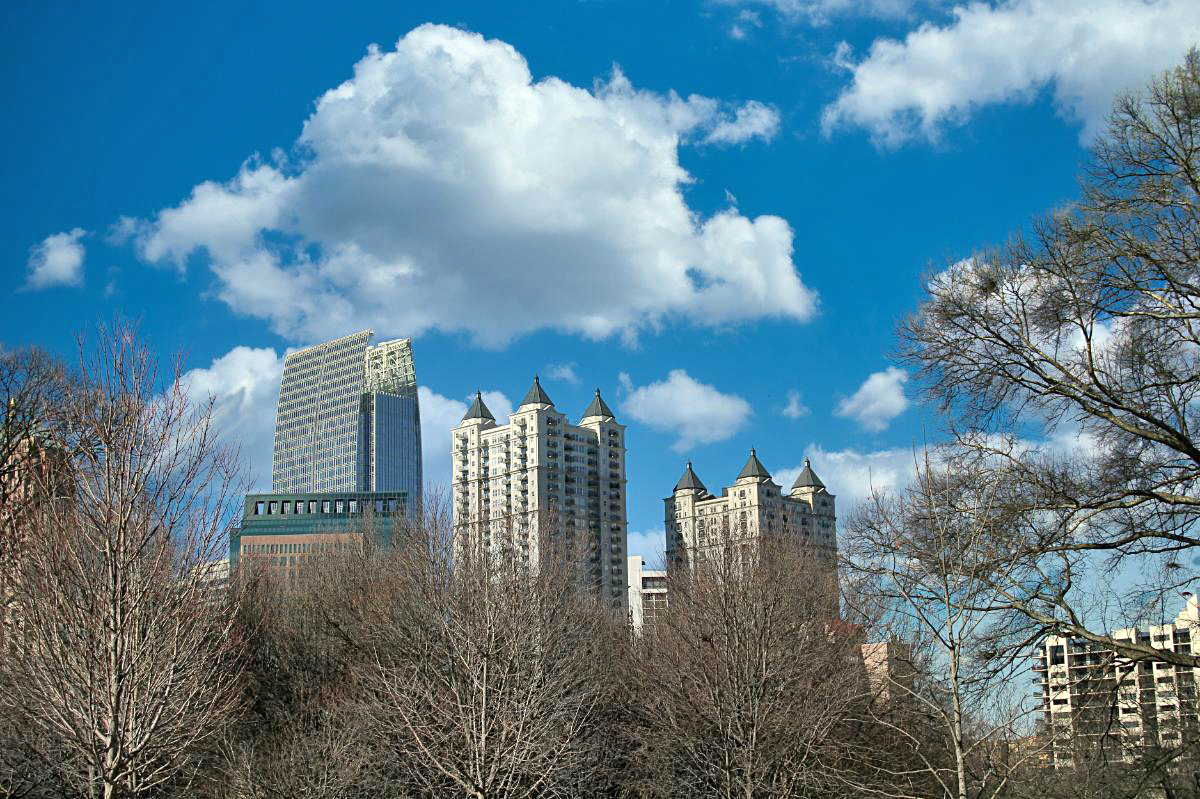
Whether your Atlanta lawn is dormant during winter or continues to grow, it still requires some attention to keep it in good shape. To help you do just that, follow our winter lawn care tips for Atlanta’s coldest months.
1. Protect Dormant Warm-Season Grasses
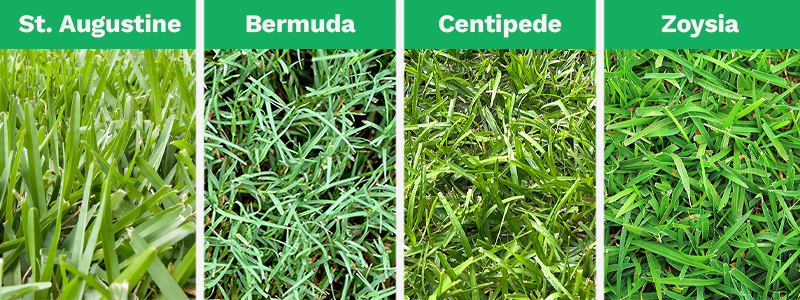
To protect warm-season Atlanta grass types — Bermuda, centipede, Zoysia, and St. Augustine — in the winter months and ensure a healthy comeback in the spring:
- Avoid foot traffic on the grass unless it’s absolutely necessary. Never walk on the grass when it’s frozen.
- Don’t use heavy equipment on the grass.
- Take care when placing holiday decorations on the lawn.
See Related: 12 Spring Lawn Care Tips for Atlanta
2. Let Your Tall Fescue Grow
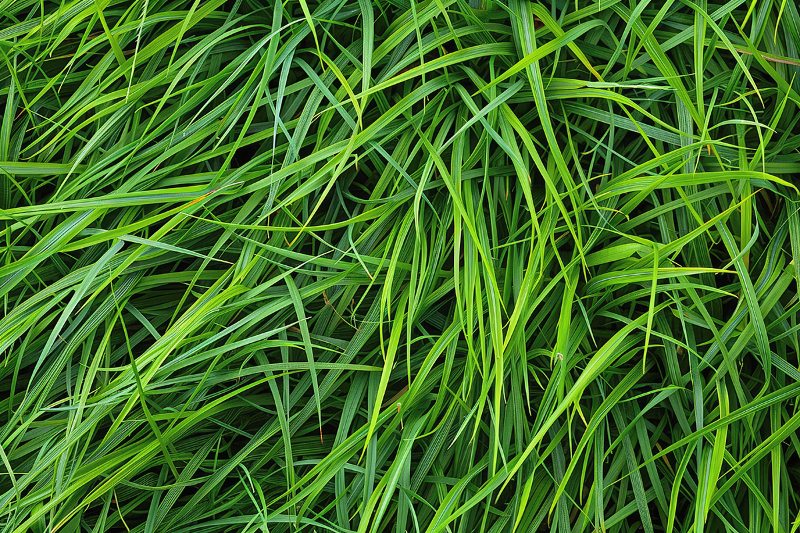
While Atlanta’s warm-season grasses are dormant, tall fescue (a cool-season grass) continues to grow during winter months. Therefore, mow tall fescue about once a month during winter, setting the mower blades about 0.5 inch taller. This allows the plant to store more nutrients and efficiently complete photosynthesis during winter.
3. Don’t Overwater Your Atlanta Lawn
For warm-weather grasses, continue to water your lawn, but reduce it to about 0.5 inch weekly; stop watering when the grass becomes dormant.
For tall fescue, water only if the grass starts to wilt or look off color. If so, apply 1 inch of water to your lawn. Too much moisture can lead to mold or other lawn diseases and support unwanted Georgia weeds.
4. Keep the Lawn Free of Dead Leaves and Debris
Check the lawn monthly, and clean it up if necessary. Remove tree branches, pet waste, and garbage, and continue collecting leaves and twigs. On a large lawn, you’ll work faster with a good leaf blower. If you skipped removing leaves in the fall, you can contract a LawnStarter pro for leaf removal to handle it for you.
Pro Tip: Don’t store piles of leaves or other organic waste on the lawn. You’ll make it a top attraction for termites. Shred the leaves, and use them as mulch on your lawn or add them to the compost bin.
5. Avoid Using Rock Salt
If you get that rare blanket of snow or ice during winter, skip the rock salt when treating walkways and driveways. Sodium chloride is toxic for plant roots and removes moisture from the soil. To protect your lawn from its effects:
- Shovel the snow instead (but don’t pile the snow on the lawn).
- Use calcium chloride or magnesium chloride to remove ice.
- Create a barrier of landscaping rocks or gravel around your lawn to prevent salt damage due to drainage.
Pro Tip: If you contaminate the lawn by accident, apply gypsum to repair any salt damage.
6. Take Out Atlanta’s Winter Weeds
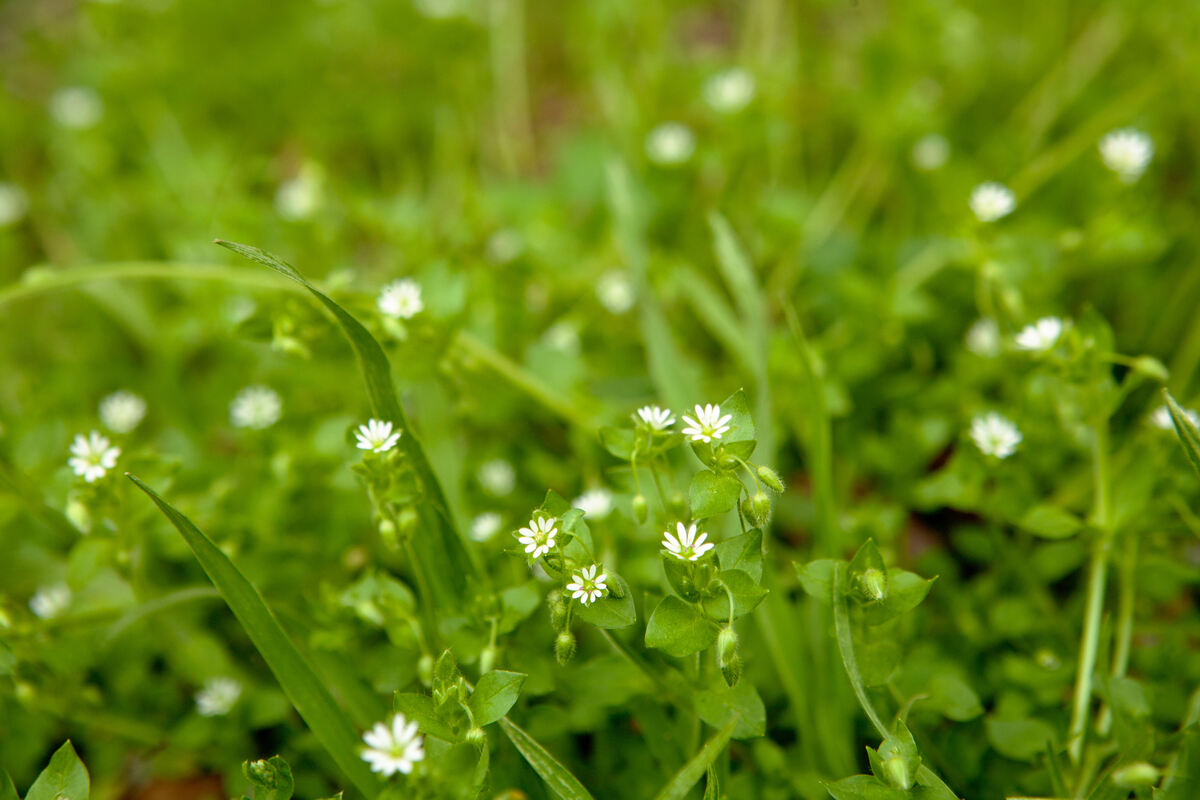
Despite the temperature drop, Georgia weeds thrive in winter. These include chickweed, henbit, Carolina geranium, musk thistle, and annual bluegrass.
If you didn’t apply pre-emergent herbicide during the fall, hand-pull weeds before flowers sprout to prevent the seeds from spreading. Alternatively, apply a post-emergent herbicide. Follow all manufacturer instructions, and apply on warm winter days when the temperature reaches 50 to 60 degrees.
If you have a tall fescue lawn, use a selective weed killer to avoid damaging the turfgrass.
Still have questions? Call the Fulton County Extension Office or find a Metro Atlanta lawn treatment pro to help you.
7. Treat Lawn Fungus

Even during winter, your turfgrass is at risk of fungal diseases. These include dollar spot, brown patch, and pythium root rot. The symptoms are easy to spot in still-green tall fescue lawns. In warm-season grasses entering dormancy, you’ll need to use the tug test to separate dormant from dead grass.
The test is simple: Grab the straw-colored grass and tug it firmly. If it’s hard to pull out, it’s dormant. If it pulls out quickly, the grass is dead, and you might have a fungal infestation.
To treat, apply a lawn fungus treatment specific to the disease. Follow the manufacturer’s instructions to avoid damage to your lawn. Also, correct any contributing issues (poor drainage, overwatering or leaf wetness, or excess shade) to help prevent issues going forward.
See Related: Common Lawn Diseases and How to Identify Them
FAQ
No, winter is not a good season to aerate the lawn, no matter the type of grass, even in the mild Atlanta climate. Poking holes in the ground can affect the roots, making it difficult for plants to recover. If you’re dealing with high soil compaction, postpone aeration until the grass’s growing season begins.
See Related: Best Time to Aerate and Overseed Your Lawn
Metro Atlanta mainly falls in USDA hardiness zone 8a, with average annual extreme minimum winter temperatures of 10 F to 15 F. There are small pockets that fall into zone 8b, with annual winter lows of 15 F to 20 F.
Hire an Atlanta Lawn Care Pro to Prep Your Yard
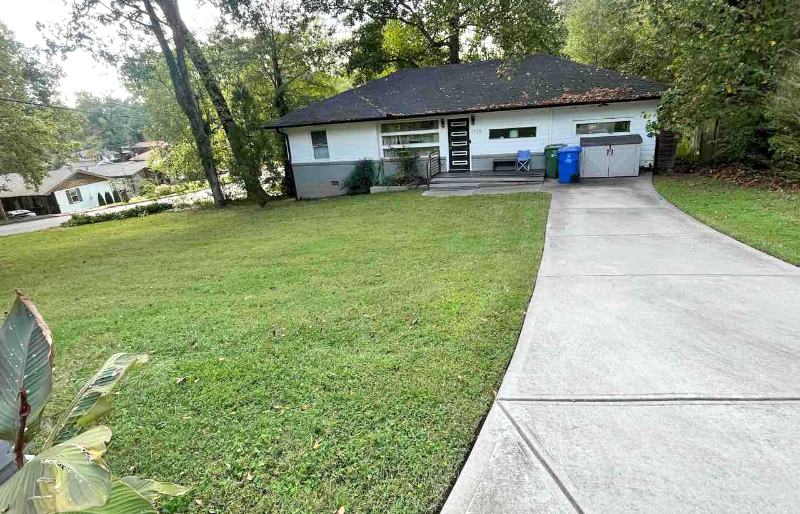
Winter lawn maintenance prepares and protects the lawn until the first warm spring days. While it’s not as demanding as other seasons, there’s still work to be done. To help you out, contact one of our Atlanta LawnStarter pros to mow cool-season lawns, remove leaves, and keep your lawn in good shape throughout winter.
Read More:
Main Image: Atlanta towers rise from trees in a city park during winter. Photo Credit: dbvirago / Adobe Stock